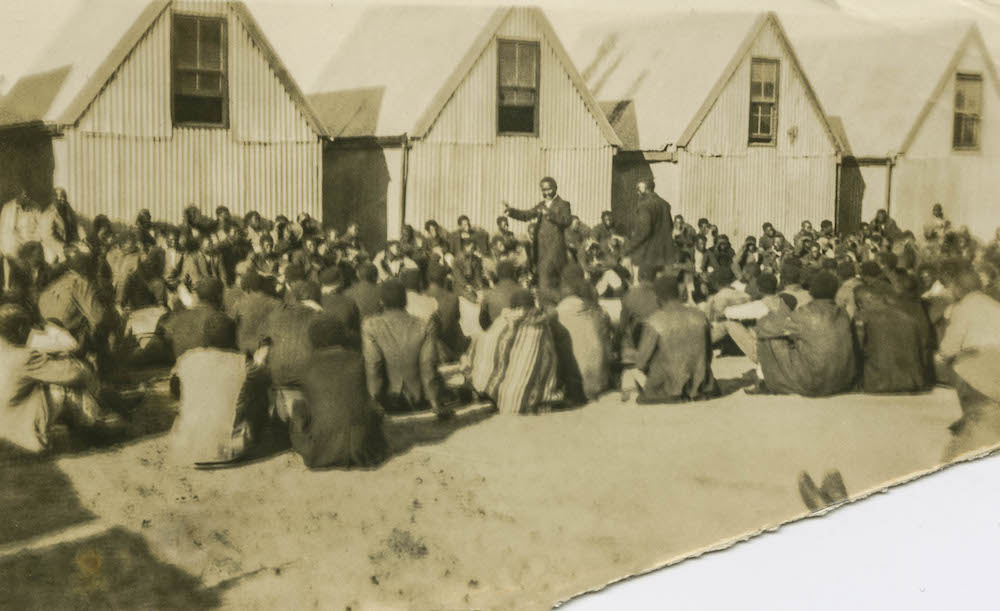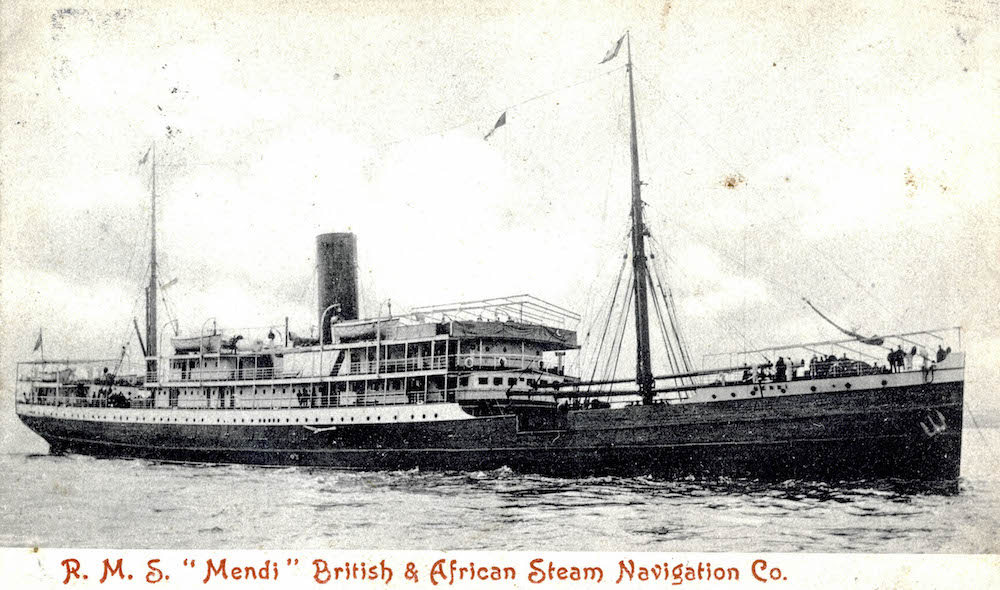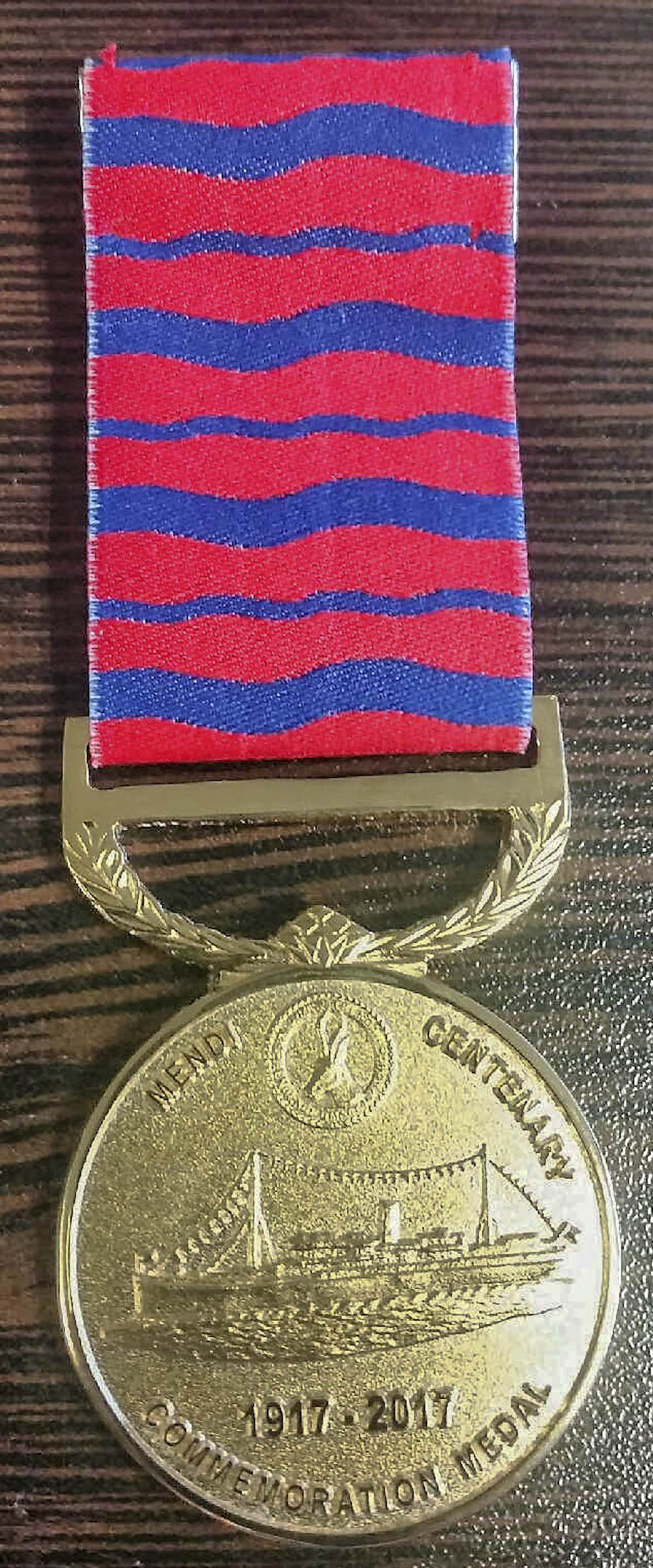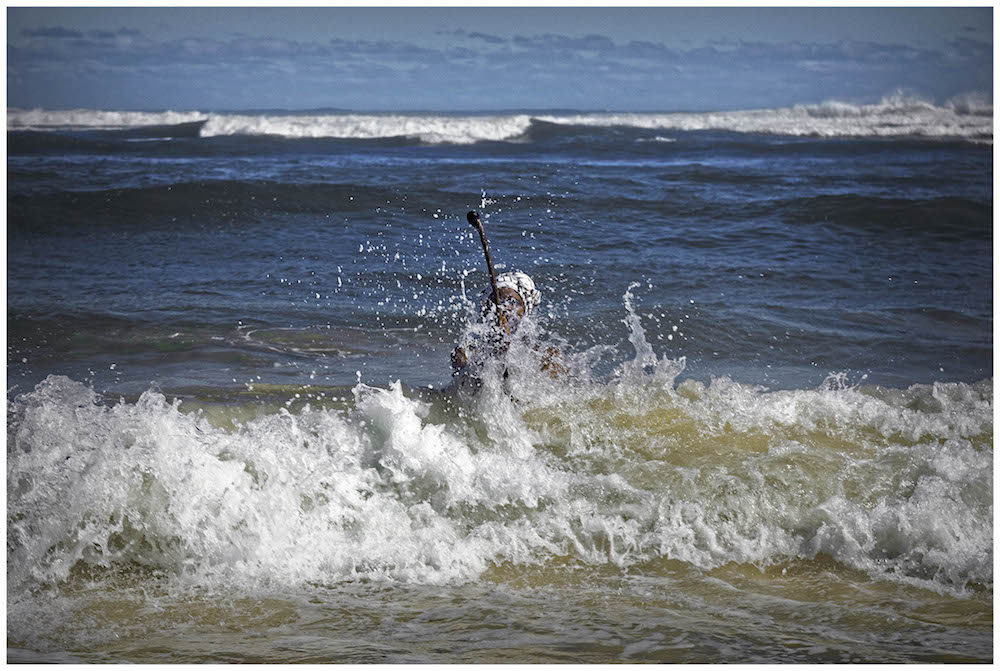Some of the men of the SS Mendi.
Government had planned to bestow medals to honour the African soldiers that drowned on the SS Mendi during World War One, on the centenary of the ship’s sinking in February. But the medal ceremony never happened – disappointing the descendants of those who fell – and no explanation is forthcoming.
The 607 black South Africans who drowned off the coast of St Catherines Point, Isle of Wight, UK on the night of 21 February 1917 were never recognised or awarded with medals, neither by colonial authorities nor by successive apartheid-era governments. The failure then continued into the democratic era – an emotive and contentious issue.
Numerous sources, that the Mail & Guardian has spoken to on condition of anonymity, were aware of a project headed up the Department of Military Veterans to strike medals for the SS Mendi’s fallen. But the process stalled with no explanation, two to three weeks before the SS Mendi centenary on February 21, they said.
One source said that all medals need a presidential warrant, and it was the signing of the warrant weeks before the SS Mendi Centenary that delayed the medals.
“The president is the only one who can sign off on medals,” said the source.
Two other sources confirmed that President Zuma would have final sign off on the medals and that they understood that the medal process has stalled when it got to the president.

The M&G has attempted for over a month to get comment from the presidency, the department of military veterans and the department of defence. All have denied any knowledge of the SS Mendi medals, except the presidency which has not responded at all.
Sam Mkokeli, a descendant of one of the SS Mendi soldiers, says he first heard about the proposed medals last year, after a researcher who focused on the SS Mendi mentioned a government process seeking out descendants.
“He said the government was looking for people like myself and asked if he could pass on my details to the government,” said Mkokeli. “That was the last I heard of it.”
Mkokeli says he is very disappointed that the medals were not presented to the families of the deceased. “The government is running away with something that belongs to the people, belongs to the families,” he says. “It’s a very sad thing.”
The SS Mendi was was transporting 823 soldiers and officers of the 5th Battalion of the South African Native Labour Corps from Cape Town to Le Havre when the SS Darro hit it.
The ship sank in less than twenty minutes and there were only 267 survivors.

However the story of the SS Mendi was kept alive in South African communities through SEK Mqhayi’s poem Ukutshona kukaMendi (The Sinking of the Mendi).
“There has been so much talk about the soldiers on board the SS Mendi not getting medals,” said one source familiar with the medal process. “This was meant to close that loop.”
“They were soldiers,” said the source. “They deserve the recognition.” Another source also expressed that the proposed medals would have been a “spiritual closing of the loop”.
A 2014 document published on the South African Navy’s website, titled Calling on the descendants of those men who served on board the SS Mendi, appears to be the beginning of the process for the proposed SS Mendi medals.
The document written by Lt Cdr Glenn von Zeil stated that, “The South African Department of Defence and Military Veterans would like to make contact with any family members of those who were on the SS Mendi.”
“The men of the South African Native Labour Corps (SANLC) did not receive medals for service in World War I,” reads the document. “The intention is to mint a special medal in the men’s honour for the centenary ceremony in 2017.”
The document calls on descendants to contact the South African Department of Defence and Military Veterans. This document was picked up by DefenceWeb, who published a story in January 2015 titled Mendi medals coming.
“There was a lot of work put into this,” said one source. “There was a process to search for the descendants of the soldiers on the SS Mendi.”
The source says 40 families came forward and only 10 of those were verified as “bona fide” descendants, but the whole process was kept “hush hush”.
Sources have detailed the process to get the medals designed and a prototype made. One source said that the medal was carefully thought out, with meaning embedded into its design. Another said the blue in the ribbon represented the ocean and the red was for bravery.
One source said the ribbon was not only designed, it was produced. The source stressed that you don’t just design and manufacture a medal ribbon for a prototype; it’s a much bigger commitment. A mold was also created to be used in the striking of the medals.
 The M&G understands that at least one prototype of the medal was struck (see picture on the right).
The M&G understands that at least one prototype of the medal was struck (see picture on the right).
On February 20, a day before the SS Mendi centenary, the South African National Defence Force held a wreath-laying ceremony in honour of the members of the South African Native Labour Corps who lost their lives.
The ceremony was held at Milton Cemetery in Portsmouth, England, where nine of the South African men are buried. On February 21, a wreath-laying ceremony was held at the exact location between Portsmouth and the south of the Isle of Wight where the SS Mendi sank.
The ship remains 40 metres below the surface. The ceremony was organised by the South African Military Veterans.
One source said that Defence and Military Veterans Minister Nosiviwe Mapisa-Nqakula had decided at the last minute to take 10 descendants to the United Kingdom. The source believes the plan was to hand these descendants medals at the centenary memorial.
One descendant who spoke to the M&G on condition of anonymity said it all happened “very quickly”. “It was quite “A-Team”, some of us got our visas five hours before check-in,” said the descendant.
The descendant described the failure to hand out medals as a “big own goal” by the government. “It is still possible in the year of the centenary of the SS Mendi,” said the descendant. “But it’s going to take a visible government effort.”
Back in South Africa, the fifth annual Armed Forces Day coincided with the SS Mendi centenary. President Zuma unveiled an SS Mendi plaque and laid a wreath.
In a speech, Zuma said Armed Forces Day has a special meaning in 2017, “because we are marking the centenary of the sinking of the SS Mendi troopship”. Zuma acknowledged that the black men aboard the SS Mendi were “not allowed to carry weapons and were to be utilised as labourers rather than as fighting soldiers”.
“They were also never decorated or awarded any medals at the end of the war,” noted the president.
Mkokeli says he is unhappy with the “dull” and “soulless” manner with which the centenary was celebrated in South Africa and questioned why the ceremony was hosted in KwaZulu-Natal.
He called on the government to work with the families of the deceased to commemorate the centenary meaningfully.
Asked if he would like to see the medals still handed out in the year of centenary, Mkokeli paused. This was something he had been thinking about a lot, he said. “We have a highly illegitimate government, perhaps we don’t even want medals from this government.”
